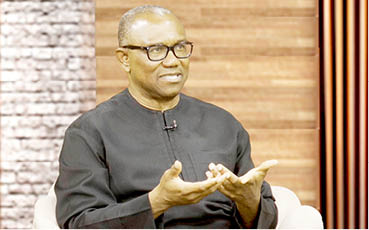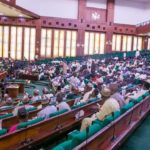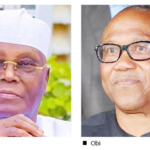Yes, I believe President-elect Bola Tinubu won the election fair and square. I also believe Tinubu deserves his victory: from 1999 to date, no candidate has earned it harder. And yes, I also believe that when the dust has settled, most Nigerians will come to see that the election was in fact as free and fair as any we have ever had, never mind the politics of electronic transmission of results that now becloud it.
A presidential election in which almost everything that could go wrong went wrong for the ruling party’s candidate, one in which 20 governors lost their states to candidates of opposition parties mainly because they could not help it, and one in which the combined votes of the three runners-up nearly doubled those of the winner, could not but be free and fair. Therefore, all the talk about the election being somehow manipulated comes down to just three things that have little to do with the actual votes cast and tallied.
The first is that cultural power overshadowed demographic power in the space for public opinion, but not at the ballot box. As political scientists very well know, ‘public opinion’ is often the opinion of a loud minority. A small minority can have a louder and far more effective voice than the majority, such that the opinion of this minority comes to seem like the opinion of all, regardless of the facts on the ground. The problem is that it doesn’t always work at the ballot box, people vote openly but in secret, and where the muffled majority can then have both their say and their way.
Secondly, far more Nigerians voted against the winning candidate than for him, and therefore, disappointment at the results is widespread. But this is rather a problem of our first-past-the-post electoral system than the authenticity of the results. More people may be disappointed than happy with the results, but that is not what the rules require. Third, there is the crisis of public communication in which INEC, through its own naivety, omission, over-confidence or all three, finds itself. Take out these three things and look carefully at the votes and it is easy to see that the election was free and fair.
- Gateway Airport: Giving a boost to agro-allied, cargo exports
- Old naira notes: Nigerians await decision, lament hardships
Now, each of these issues—Tinubu’s victory and his never-say-die spirit, the transparency of the elections as shown by the results, the outsized role of cultural power over demographic power in the campaigns—requires more detailed comment, if for nothing else because commentary is the job of a columnist. But they are also worthy subjects for further comment because, whatever it might be worth, it is good to lend one’s voice to a debate about an election in which the line between truth and make-believe will perhaps remain irredeemably blurred. But today, I only have a few words for Peter Obi, former governor of Anambra State and presidential candidate of the Labour Party in the election.
I was bemused watching, Peter Obi declare himself winner long after Tinubu had been officially announced as president-elect by INEC. There is an important lesson here: People are always crowned to power; they do not crown themselves. If you have to declare yourself emperor, king or president, then you are already on the wrong side of power. The candidate of the PDP and former Vice President Atiku Abubakar, who came a close second and who had a more realistic chance of winning the election than Obi, was much more dignified, presidential and quite frankly, delivered his best performance of the campaign at his own news conference. Atiku said, and I agree, had Obi not left the PDP to run an insurgent campaign that would not make him president now, he would have been his VP nominee, and most likely now president-elect and vice-president elect.
There was no time in the campaign that I thought Obi would win this election. His support base was lopsided from the start, and even when it expanded after the fall of Vice President Yemi Osinbajo in the APC presidential primaries, it did so exclusively along the same original lines of Igbo/Christian. That is not enough to take Nigeria’s presidency. Even his much-trumpeted support among youths was equally lopsided: there were no youths in much of the North and the South West outside of Lagos singing ‘Obi for president’ songs throughout the campaign; and the youths in these places, like the voting population overall, outnumber those anywhere else.
Nevertheless, Obi’s performance in third place was actually very good. It was not enough for victory, but it was not a crushing defeat either. Obi’s victory in defeat, as I will put it here, presents a classic case of looking at the glass either as half-full or as half-empty: seeing his numbers in the election as a glass half-full also opens a path to the presidency for him. Seeing it otherwise will only waste a good opportunity.
But first, he must recognise the result as a good thing for him and for Nigeria because it is a repudiation of Biafra. That he falls short this time does not diminish that significance. What the results mean for him and for the country is that Nigerian voters will vote for whoever they want, depending on how the candidate is perceived at any given time. More than that, it shows that there is no deliberate attempt by anyone to frustrate the Igbo from the highest office in the land.
People just need to understand the language of the game, which, as former Vice President Atiku Abubakar so succinctly put it last week, “you must negotiate for power in a democracy, not fight for it”. A militant politics and a culture of victimhood are no path to power in a plural society like Nigeria’s. That is the first lesson to learn, or relearn.
Second, Obi must realise that his 6.1 million votes put him in a strong position from which to build for the near and plausible future, depending, of course, on many unknowns. That requires both a change in attitude and strategy. If Obi really wants the office, then he must work hard to make himself not only more visible but also more appealing, or at least more acceptable, in the areas where he falls far short. Buhari won in 2015 not just because of the merger of his CPC with other parties to form the APC, but also because there were deliberate attempts to make him more acceptable to voters in areas where he had traditionally lost. And the results showed.
Finally, Obi and his supporters must learn to respect the laws of Nigerian presidential elections, one of which is that cross-country “structures” matter. His supporters, taking a cue from him, thought that what we call “structures” in Nigerian politics don’t matter, and they may well see these results as a vindication of their viewpoint. But it would be a mistake because structures do matter. For me, Obi got these many votes mainly because he was the only Christian among the four leading candidates. Add a strong Christian candidate to the mix, and his votes would have plummeted. The final lesson should be clear by now: to take the Nigerian presidency, one must have political affiliations that are pan-Nigerian enough

 Join Daily Trust WhatsApp Community For Quick Access To News and Happenings Around You.
Join Daily Trust WhatsApp Community For Quick Access To News and Happenings Around You.

